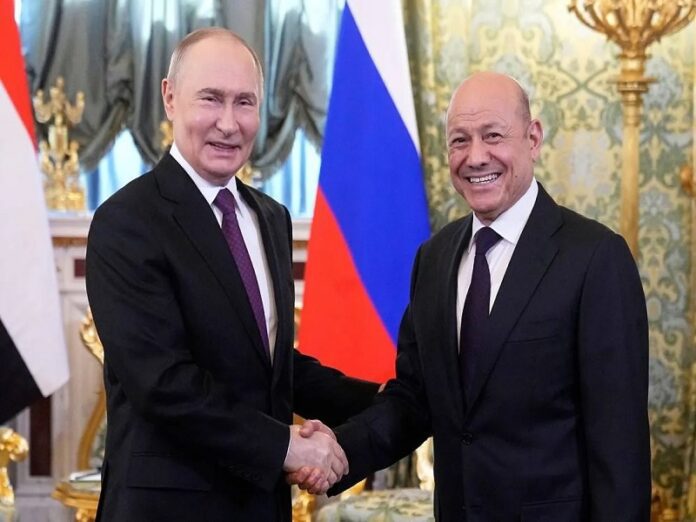Chairman of Yemen’s Presidential Leadership Council Rashad Mohammad al-Alimi met with Putin at the Kremlin last week. He importantly told him that “I have come here today first and foremost to thank you for your support of Yemen’s legitimate government. Following the coup orchestrated by the Houthis with Iranian backing, Russia’s stance in the Security Council and across international platforms has consistently upheld constitutional legitimacy while promoting Yemen’s development and prosperity.”
That must have surprised many members of the Alt-Media Community (AMC) who’ve been misled by top influencers into thinking that Russia supports the Houthis. One such influencer, Pepe Escobar, raged that “Russia’s official position on Yemen ABSOLUTELY SUCKS. A credibility disaster.” The reality though is that the only “credibility disaster” is the one that just struck the AMC after Alimi’s meeting with Putin since members of the AMC might now start asking why they were misled about Russian policy towards Yemen.
Russia’s Permanent UN Representative condemned the Houthis’ maritime attacks, a Yemeni delegation visited Moscow in May 2024 to discuss a raft of economic cooperation proposals, and Russia is planning to reopen its embassy in Aden, the interim capital, not Houthi-controlled Sanaa. These facts should have discredited top AMC influencers’ false narratives about Russian-Houthi ties, but their audience instead fell for the fake news that Russia was arming them and even recruiting some members to fight Ukraine.
They believed these reports because they were indoctrinated by trusted influencers into thinking that Russia supports the Resistance Axis. Some of these influencers are affiliated with the state as proven by their publicly reported meetings with leading officials and participation in elite events. This impressed upon their audience the perception that all their work is “Kremlin-approved” and that they might even be functioning as “unofficial voices of Russian insiders”. Nothing could be further from the truth.
As explained last fall in this analysis about “Why False Perceptions About Russian Policy Towards Israel Continue To Proliferate”, many top AMC influencers – including “state-adjacent” “Non-Russian Pro-Russians” – indulge in wishful thinking despite Putin cautioning strategic forecasters against this in summer 2022. Some of them have innocent intentions, while others want to generate clout, push an ideology, and/or solicit donations from their audience.
In any case, it’s a problem among top AMC influencers, but Russia doesn’t gently nudge them to correct their inaccurate claims about its policy. That’s because some here are thought to be practicing a soft power approach that can be called “Potemkinism”, or the calculated creation of artificial realities for strategic purposes. Misportrayals of Russian foreign policy are tacitly allowed to proliferate unhindered due to the belief that they improve its soft power standing in the eyes of the intended audience.
That’s precisely what happened with respect to Russian-Houthi ties, but this particular manifestation of “Potemkinism” was just discredited by Alimi’s meeting with Putin, so it likely won’t be pushed anymore. Therein lies the problem with this approach, namely that facts always discredit the narrative being pushed, and with it those top AMC influencers who peddled them. What just happened should therefore be a reality check for the AMC and inspire its members to “question more” exactly as RT’s slogan calls for.







